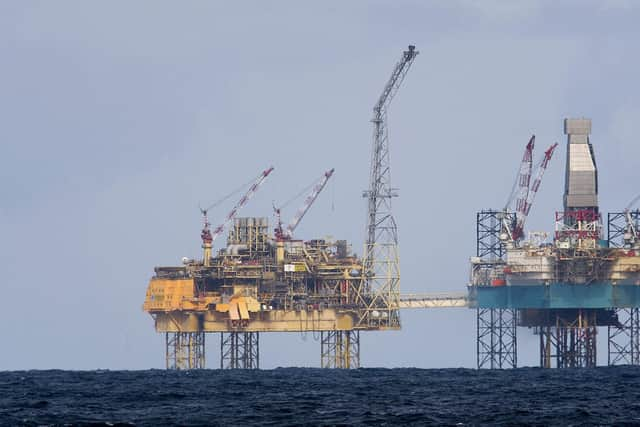UK Government’s Offshore Petroleum Licensing Bill is vital to keep the lights on – Alister Jack
The cold snap most parts of Scotland are experiencing, and our still short and dark days, are a reminder to us all of how important it is that we all have a reliable source of heat and light. Scotland’s oil and gas sector is a key part of the UK’s energy security strategy. Unlike the SNP, the UK Government is a champion of the North Sea, we want to maximise our own energy resources, and continue to support those vital and highly skilled jobs in the North East of Scotland.
A key part of that strategy is to create an annual system of new oil and gas licensing rounds. And our legislation to do that – the UK Government’s Offshore Petroleum Licensing Bill – is before MPs today. This is a crucial piece of legislation to ensure the UK’s energy security, and underlines our commitment to our oil and gas sector, to growing our economy, and to the 93,000 Scottish jobs supported by the sector.
Advertisement
Hide AdAdvertisement
Hide AdThe UK Government is committed to our transition to net zero. But it’s not either/or. We will need oil and gas for decades to come, even when we reach net zero in 2050. It is common sense to make the most of what we can produce here rather than shipping in fuels from foreign regimes.


Take the Victory field, some 40 or so miles northwest of Shetland. Last week Shell confirmed it will bring Victory online within a couple of years, via the existing Shetland Gas Plant and the St Fergus terminal, outside Peterhead. At its peak, Shell estimates that Victory will supply enough gas to heat almost 900,000 homes per year, reducing our reliance on higher-emission imports.
The North Sea Transition Authority says that in 2022, 38 per cent of the UK’s gas supply was produced domestically. This UK Government legislation will give confidence to the oil and gas sector, and help our country secure its energy future – as we drive towards net-zero targets.
The Bill will give us a more flexible approach, allowing Britain to maximise domestic resources. It will introduce annual licensing rounds for the North Sea – all subject to tests to ensure that future licensing supports our transition to net zero. This will help industry keep a steady conveyor belt of oil and gas work rolling forward, even as we move away from reliance on fossil fuels and towards cleaner wind, wave and hydrogen power.
The carbon footprint of domestic gas production is around one-quarter of the carbon footprint of producing and importing liquefied natural gas. Not proceeding with new licences would mean increased reliance on this imported liquefied natural gas.
Oil and gas supports around 200,000 British jobs, many of them right here in Scotland. We need those jobs now, but we also need them for the future as our plan for renewables depends on redeploying the skills today’s experts have. And we need today’s young people to see a clear career path in the energy sector. It wouldn’t be fair to them to push current oil and gas workers off a cliff edge before renewables are at the scale we require.
The North East of Scotland is central to strengthening the UK’s energy independence, and it is where many of the next generation of skilled apprentices, key to driving us forward, will find work. Future licences will be essential to providing energy security options, unlocking carbon capture usage-and-storage (CCUS) opportunities so we can build truly integrated offshore energy hubs that make the best use of our established infrastructure.
New licences are intended to contribute to existing fossil fuel needs – not to grow demand – so that the UK remains on track to meet net zero by 2050. Even when we reach net zero, up to a quarter of our energy needs may still come from oil and gas, and it makes absolutely no sense to rely on hostile states, rather than on the supplies we have here.
Advertisement
Hide AdAdvertisement
Hide AdBy investing in crucial industries such as CCUS, we will support thousands of skilled jobs, unlock further opportunities for green technologies, and grow our economy. The Acorn CCUS project in the North East has, with Viking on the Humber, been chosen as Britain's third and fourth CCUS clusters, subject to due diligence.
That decision shows Scotland has a pivotal role as we use advancing technology to tackle our climate issues. We are determined to create a thriving CCUS industry, which could support up to 50,000 jobs in the UK by 2030. We will achieve that by tapping the oil and gas sector’s existing supply chains, expertise and key skills – while protecting jobs.
The UK has one of the largest potential carbon dioxide storage capacities in Europe, making the North Sea one of the most attractive business environments for CCUS technology. The government has committed to provide up to £20 billion in funding for early deployment of CCUS, unlocking private investment and job creation.
We are looking at an energy revolution, but the way to get us to the prize of net zero by 2050 is to have a balanced energy policy. We need nuclear – and I hope the Scottish Government will see sense and embrace the new technology coming on stream. We need to ramp up wind and wave renewables to unimagined heights.
But I say this clearly: to keep the lights on, to keep our homes and workplaces warm – we also need oil and gas.
Alister Jack is Conservative MP for Dumfries and Galloway and Secretary of State for Scotland
Comments
Want to join the conversation? Please or to comment on this article.